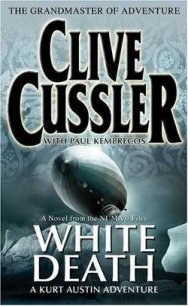The Whispering Land - Durrell Gerald (читать книги .TXT) 📗
"What is this for?" she asked in a penetrating voice.
I explained the necessity of the paper bag. She held it aloft and examined it minutely.
"Well," she said at last, "if I wanted to get sick I should want something much larger than that."
The man across the gangway cast a look at her ample form and the size of the brown paper bag, and the vision conjured up by her words was obviously too much for him, for he dived precipitously for his own bag and buried his face in it.
When the plane eventually touched down my girlfriend and I were the only ones who dismounted without looking as though we had just been through a hurricane. In the foyer* of the airport her son was waiting, a pleasant-faced man who was identical in shape to his mother. Uttering shrill cries they undulated towards each other and embraced with a fat-quivering crash. When they surfaced, I was introduced and commended for the care I had taken of my protegee* en route.* Then, because the driver who was to meet me was nowhere to be seen, the entire Lillipampila family (son, wife, three children and grandmother) hunted round the airport like foxhounds until they found him. They saw me to the car, embraced me, told me to be sure to look them up* when I was in Salta, and stood, a solid facade of fat,* beaming and waving as I drove off on my way to Calilegua, the place where I was to stay. Kindness in Argentina is apt to be overwhelming, and after having been embraced by the entire Lillipampila family I felt every bone in my body aching. I gave the driver a cigarette, lit one myself and leant back and closed my eyes. I felt I deserved a few moments' relaxation.

Chapter Five
JUJUY
The elegance of the grasses, the novelty of the parasitical plants, the beauty of the flowers, the glossy green of the foliage, but above all the general luxuriance of the vegetation, filled me with admiration.
Calilegua was primarily a sugar-producing estate though it also grew a certain amount of the more tropical varieties of fruit for the Buenos Aires market. It was a flat plain that lay cupped in a half-moon of mountains* that were covered with thick, tropical forest. It was curious how suddenly you came upon this lushness of vegetation. We left the airport and for the first hour or so drove through a desiccated landscape of semi-eroded hills, sun-baked, scrub-covered, dotted here and there with the great swollen trunks of the palo borracho trees, their bark as thickly covered with spines as a hedgehog's back, and here and there you saw one of the giant cacti rearing up, perhaps twenty feet high, decorated with strange curving branches. These again were spine-covered and unfriendly. Then we sped round a couple of corners, down a hill and into the valley of Calilegua, and the vegetation changed, so suddenly that it was almost painful to the eye. Here were the vivid greens of the tropics, so many shades and some of such viridescence* that they make the green of the English landscape look grey in comparison. Then, as if to assure me that I was back in the tropics, a small flock of parakeets* swooped across the road, wheezing and chittering. Shortly afterwards we passed a group of Indians, dressed in tattered shirts and trousers and gigantic straw hats. They were short and squat, with Mongolian features and the curious sloe-coloured* eyes over which there seems to be a bloom* like a plum that covers thought and expression. They glanced at the car incuriously as we passed. After being among Europeans so long, and in the flat scenery of the Pampa and Patagonia, the Indians, the parakeets and the vividness of the country through which we drove went to my head like wine.
Presently the driver slowed down and swung off the main road on to a rough track that was thickly lined on both sides by thick clumps of gigantic bamboos, some of the canes being as thick as a man's thigh and pale honey-coloured, tiger-striped with green. These huge canes bent gracefully over the road and intertwined their fluttering green leaves overhead so thickly that the road was gloomy, and it was like driving down the nave* of a cathedral. The sunlight flickered and flashed between the giant stems as we drove down the rutted track, and above the noise of the car engine I could hear the strange groans and squeaks that bamboos make when swayed by the wind. Presently we came to a villa half-hidden in a riot* of flowers and creepers, and here the car stopped. Joan Lett, who, with her husband Charles, had invited me to Calilegua, came out to greet me, took me inside and gave me the most welcome cup of tea. Presently, when Charles returned from his work, we sat on the balcony in the fading indigo evening night and discussed my plan of campaign.
It has always been my experience in most parts of the world, that if you go to an area which is fairly well populated you can obtain most of your common local fauna without much difficulty, for the local people keep the creatures either as pets, or rear them until they are old enough to form the basis for a meal. So your first job should be to go round every ranch and village in the vicinity and buy what you can. Then you can review your collection and try and fill in the gaps (which are generally the rare creatures) yourself. I propounded this philosophy to Charles, as the ice tinkled musically in our gin-and-tonics,* but to my dismay he was not inclined to agree with me. He said that he did not think the Indians in Calilegua kept anything in the livestock line, except the usual run* of cats, dogs and chickens. However, he promised that the next day he would get one of his more intelligent helpers to make inquiries in the village, and let me know the result. I went to bed fortified by gin but in a gloomy frame of mind, wondering if after all I had come to the wrong place. Even the faint whisper of crickets outside in the garden and the huge trembling stars that told me I was back in the tropics did little to cheer me.
The next morning, however, things looked brighter. After breakfast I was out in the garden watching a flock of gold, blue and silver butterflies feeding on the scarlet blooms of a bush when Luna arrived. I had heard him singing, in a pleasant tenor voice, as he came down the avenue of bamboo, and as he reached the gate he paused in his song, clapped his hands in the customary manner of anyone in South America when arriving at your house, opened the gate and joined me by the bush and the butterflies. He was a tiny man, about five feet in height, and as slender as a fourteen-year-old boy. He had a handsome, faintly skull-like face, with huge dark eyes, and black hair that was cropped close to his head. He held out a hand that looked as fragile as the butterflies we were surrounded by.
"Senor Durrell?" he inquired.
"Yes," I replied, shaking his hand gently, for fear it should break off at the wrist.
"I am Luna," he said, as if this should be sufficient explanation.
"Senor Lett sent you?" I asked.
"Si, si," he answered, giving me a smile of great charm and sweetness.
We both stood and watched the butterflies drifting round the red blooms, while I racked my brains for the right Spanish phrases.
"Que lindo," said Luna, pointing at the butterflies, "que bicho mas lindo!"*
"Si," I said. There was another pause, and we smiled at each other amiably.
"You speak English?" I inquired hopefully.
"No, very small," said Luna, spreading his hands and smiling gently, as if deploring this terrible gap in his education.
It was obvious that his knowledge of my language was about as extensive as mine was of his. This later proved to be true. Both of us could understand a quite complicated conversation in each other's language, but both were incapable of doing more in speech than string a few ungrammatical nouns and verbs together.



